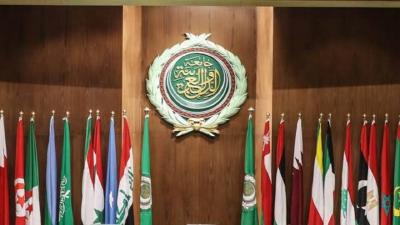After Egypt and Saudi Arabia called for an emergency meeting today, Sunday, at the level of permanent representatives in the Arab League to discuss the situation in Sudan, a statement from the urgent session, which saw interventions from the representatives of Egypt and Sudan, emphasized the importance of making every effort to assist Sudan in resolving this crisis sustainably. Arab ambassadors accredited in Khartoum were called upon to coordinate among themselves and communicate with Sudanese parties and components. There were warnings about the dangers of violent escalation and the implications that accompany it.
Egypt's representative, Ambassador Mohamed Mustafa Al-Arefy, expressed Egypt's sorrow over the casualties, all of whom are fellow Sudanese citizens. He called for an immediate cessation of violence and urged the utmost restraint. He stressed the importance of safeguarding the interests and safety of Egyptians in Sudan and reminded everyone how Egypt has assisted Sudan in alleviating debt burdens and optimizing the use of its wealth, emphasizing that it has not hesitated to provide assistance and share expertise. He underscored that Sudan represents a historical and geographical depth, particularly given the intertwined past stemming from the Nile River.
He highlighted the need to avoid external interference and make every effort to resolve the crisis in a sustainable manner.
Sudan's representative, Ambassador Al-Sadiq Omar Abdullah, announced that "Rapid Support Forces initiated the attack on the main residence of the Transitional Sovereignty Council at nine o'clock yesterday morning, knowing that a meeting with President Burhan was scheduled for the same day, indicating that the first attack is a type of treachery." He called on the Arab League to recommend leaving the matter to Sudanese citizens without international interference, appealing for the necessary Arab support for de-escalation.
The Assistant Secretary-General of the League, Ambassador Hossam Zaki, announced that the council would remain in regular session until the Sudanese crisis is resolved.
Mediation
Egyptian President Abdel Fattah el-Sisi, in a call with South Sudan President Salva Kiir, pointed to the seriousness of the current situation and the ongoing military clashes, affirming full support for the Sudanese people in their aspirations for security, stability, and peace. Both presidents expressed readiness for Egypt and South Sudan to mediate between the Sudanese parties, asserting that escalating violence would only lead to further deterioration of the situation, possibly leading to a loss of control. They emphasized that establishing security and stability is the guarantee for completing the political transitional path and achieving construction and development in Sudan.
Egypt's Foreign Ministry spokesperson, Ambassador Ahmed Abu Zaid, stated that the meeting is based on paragraph "5b" of Article Five of the League's internal bylaws, which allows for the council to convene in an extraordinary session upon the request of two member states. He pointed out that the rapid and serious developments in Sudan necessitate this meeting to consult and coordinate among Arab countries to discuss ways to defuse the current crisis and work towards restoring stability to the brotherly state of Sudan as soon as possible.
African Movement
For its part, the African Union's Peace and Security Council firmly rejected any external interference that could complicate the situation in Sudan.
Security Council
Members of the Security Council expressed deep concern regarding the clashes between the Sudanese army and the Rapid Support Forces and expressed sorrow for the loss of life and injuries among civilians. In a statement, they urged an "immediate cessation of hostilities in Sudan" and called on all parties "to return to dialogue."
U.S. Secretary of State Antony Blinken stated on Saturday that he consulted with Saudi Foreign Minister Prince Faisal bin Farhan and UAE Foreign Minister Abdullah bin Zayed regarding the clashes in Sudan. In a statement, they agreed on the need for the parties involved in the clashes to cease hostilities immediately without any preconditions.
Fighting between SAF and RSF forces threatens the security and safety of Sudanese civilians and undermines efforts to restore Sudan’s democratic transition. The only way forward is to return to negotiations.— Secretary Antony Blinken (@SecBlinken) April 16, 2023
Additionally, a U.S. State Department official expressed concern on Sunday over the high levels of violence in Sudan, which have led to dozens of casualties. The official, while on his way to Tokyo to attend a meeting with G7 foreign ministers starting on Sunday, noted that "some of these attacks involved the use of heavy weaponry."
For its part, the Chinese Foreign Ministry urged both sides in the conflict in Sudan to cease fire and prevent the situation from worsening, expressing concern over developments in Khartoum. Chinese state media reported that the Chinese embassy in Sudan stated it had "not received any reports of Chinese casualties in Sudan" and reminded its citizens in the country to ensure their safety.
The British Foreign Ministry called for an end to hostilities in Sudan and for tensions to be de-escalated to prevent further bloodshed. Meanwhile, Italian Foreign Minister Antonio Tajani urged Sudanese military leaders to end hostilities in order to resume political dialogue, noting that "these clashes threaten civilians and challenge democracy."




